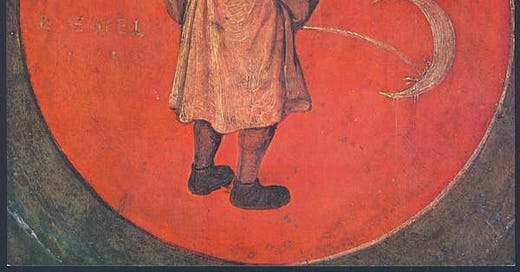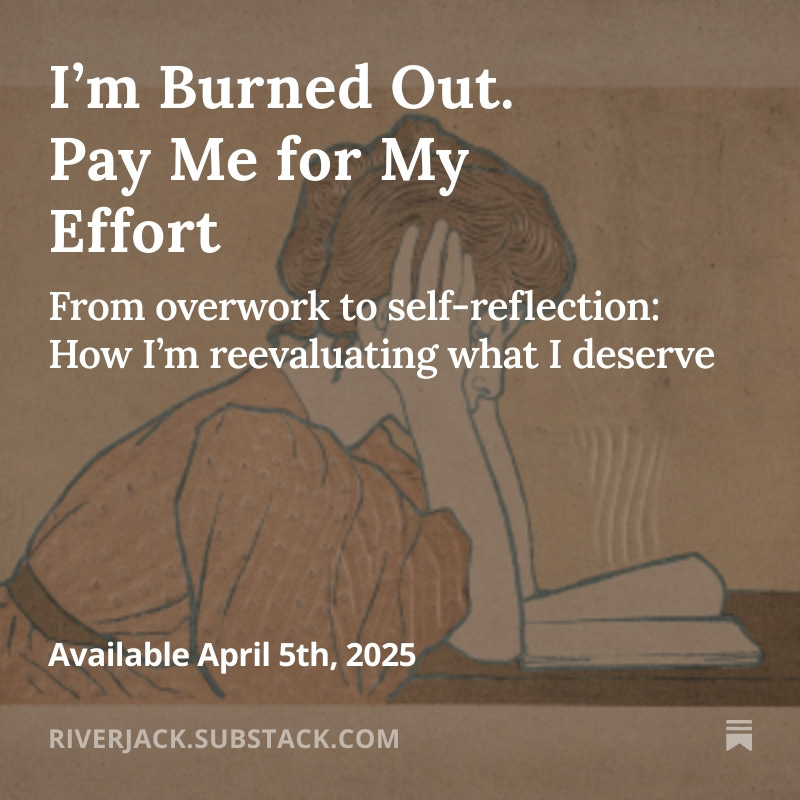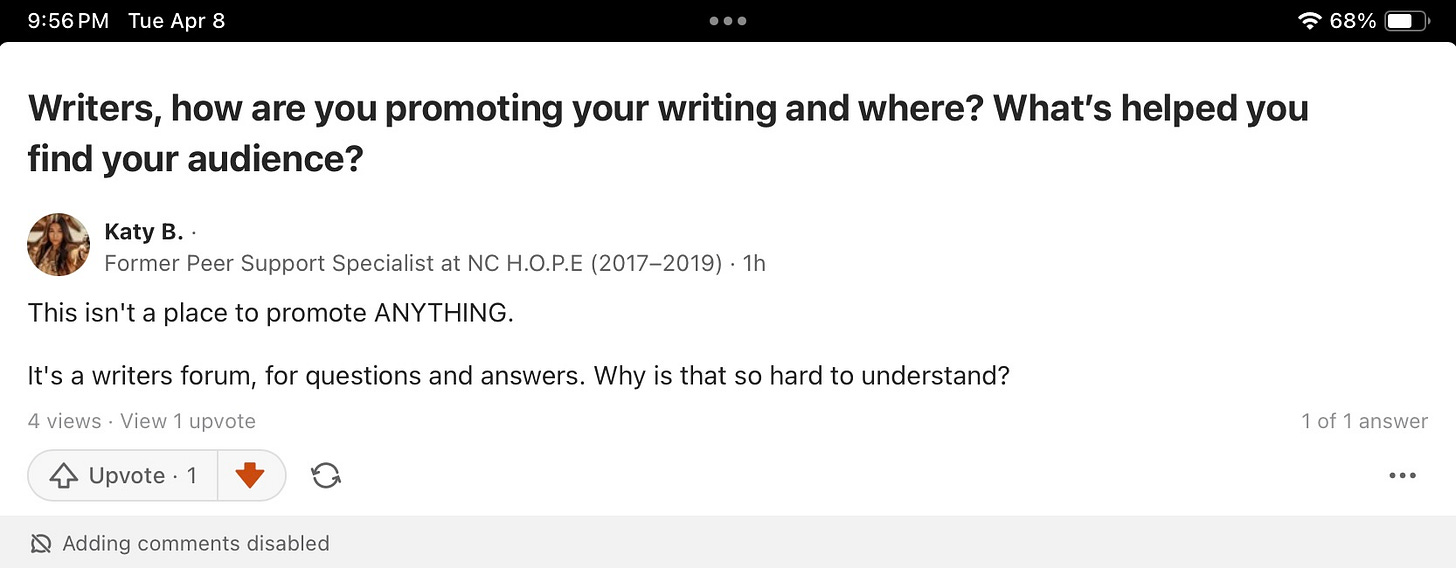At 30 years old, I’m putting myself out there. And I picked a great time to do so.
In January of 2020, I decided to start vlogging. I only made it a few months into the pandemic before I gave up. I have been missing video editing lately, briefly yearning for the creative outlet, but I keep bumping into thoughts of “why bother?”
I’m working on getting that thought to shut up.
You know who started their YouTube Channel in 2020? Mr. Ballen.
I hadn’t heard of Mr. Ballen and his strange, dark, and mysterious storytelling until maybe a year ago. I’m not surprised, but I am in awe of the creators I stumble across who have established, successful audiences and businesses.
The internet is a vast, abundant place. But it’s not always friendly.
What if I stuck with vlogging? Where would I be creatively or professionally 5 years later?
There’s no guarantee that I would have found Mr. Ballen-level success but the potential for something was there.
Something happened to me the other day when I published an essay freely (behind a paywall ironically enough) venting about my burnout in publishing—I feel friskier, intentional, awake, spicy.
I’d like to turn “what if I stuck with that project for the last five years?” into “what if I try sticking with this for the next five years? How about them apples?”
Part of that plan is forcing myself to be social again—intentionally, strategically, only kind of recklessly when it comes to being social online. And so, I do what I thought would be a low-risk thing to do: ask a question.
Writers, real talk: How are you promoting your writing and where?
What’s helped you find your audience?
It’s an earnest, open-ended question. I could be more specific, and I may experiment with that later, but I am mostly curious to see the responses (if any) this would garner.
I asked this question on Substack and Threads to crickets. Fair considering I’m just now starting to interact on these platforms.
For some reason, I decided to post this question on Quora. I have a weird fascination with Quora. I’ve randomly accumulated 100,000 views on answers I’ve given in the past, and I often forget it exists.
I’m not very acquainted with the dynamics on Quora—the communities, the attitudes, the tropes, the tone—and I’ve rarely posted questions. But I thought, what the hell?
I checked an hour after I posted the question to see if I had any answers. And oh look, I have one.
My first impression—what a bitch. And of course the comments are disabled!
The “what-about-isms” of the chronically online really get my blood boiling. No one is reading for comprehension or clarity.
So let me write my response to this non-answer here:
Dearest Katy B.,
It appears after looking upon your profile, you are a master of snark-response and trolling. I’d accuse you of being a bot but the amount of attitude and pretentiousness leads me to believe you’re probably someone out there in the world.
Let me answer your question about “Why is that so hard to understand?” because you don’t seem to understand that I did ask a question, but you failed to answer that question.
So really, is it not you who is breaking etiquette here?
And my dear, if you took more than .5 seconds to glance at your screen 4 inches from your face, you’d see that I’m not promoting anything. I’m asking other writers how they do promotion.
To be clear, there’s nothing wrong with promoting my writing or other writers promoting their art. There’s absolutely an icky stigma in the writing world about promotion and marketing—you see it every where, like the publishing industry, for example.
I’ve worked with over 100 authors and each of them feel some sort of disconnect when it comes to marketing their work. These are authors of fiction, nonfiction, memoir, fantasy, children’s book. These are authors who are writing their first book, their third, who have come from years of expertise in the corporate world, the fashion world, the everyday world.
And yet, they all struggle with this.
You see, I don’t need to be told how to market. Marketing is messaging. And the best marketing for writers, authors, creatives—really anyone—is word-of-mouth.
But what achieving word-of-mouth looks like different things, especially today in the online world. Word-of-mouth starts with the author, the creator, talking about their work, aka promoting it.
Your snap-non-response is exactly why writers and artists are shit out of luck when it comes to genuine advice from others they can try on for size.
Oh, and thank you for the content. I’ll be using it to promote my Substack.







At almost 40 years old, I’ve learned that nobody gets to tell you how to build your voice—though plenty of people think they can. I like writing for the ones who watch quietly. The ones who may never hit “like,” leave a comment, or write a review, but who feel a little less alone because of something I wrote or said. And Katy B., in case you’re reading: dialogue doesn’t need your permission slip.